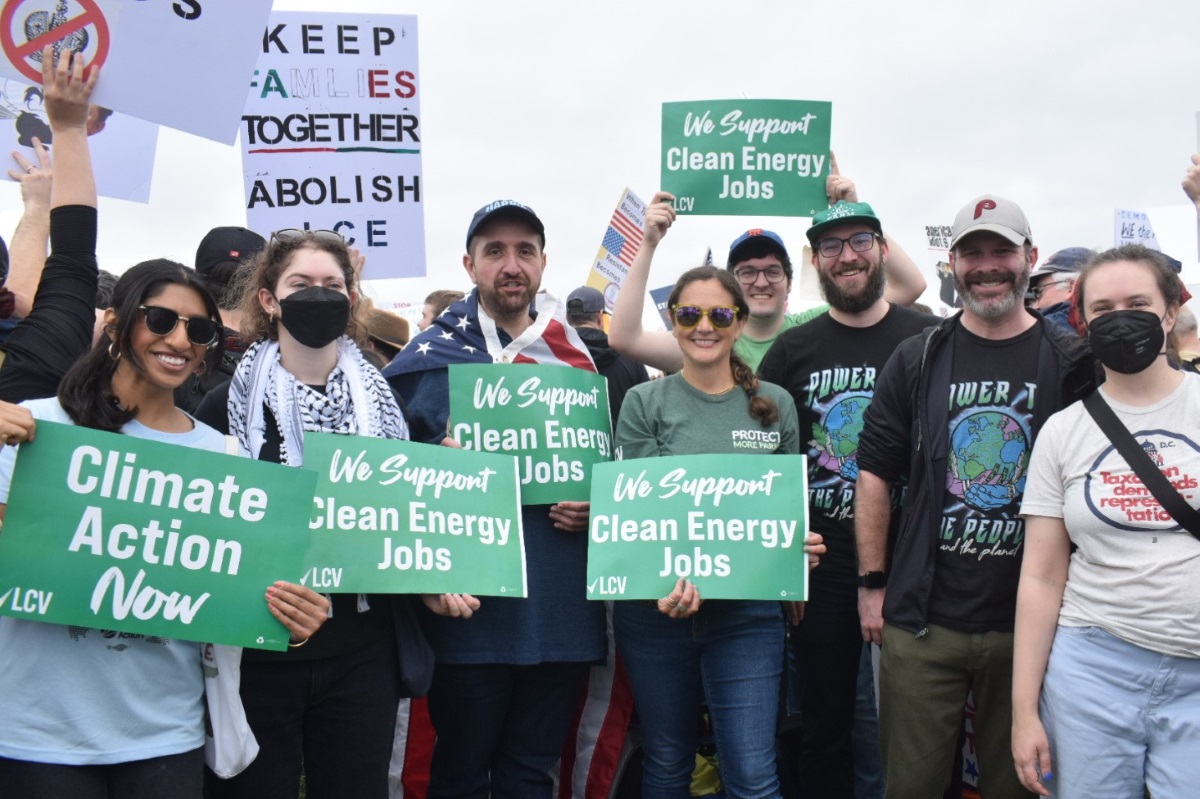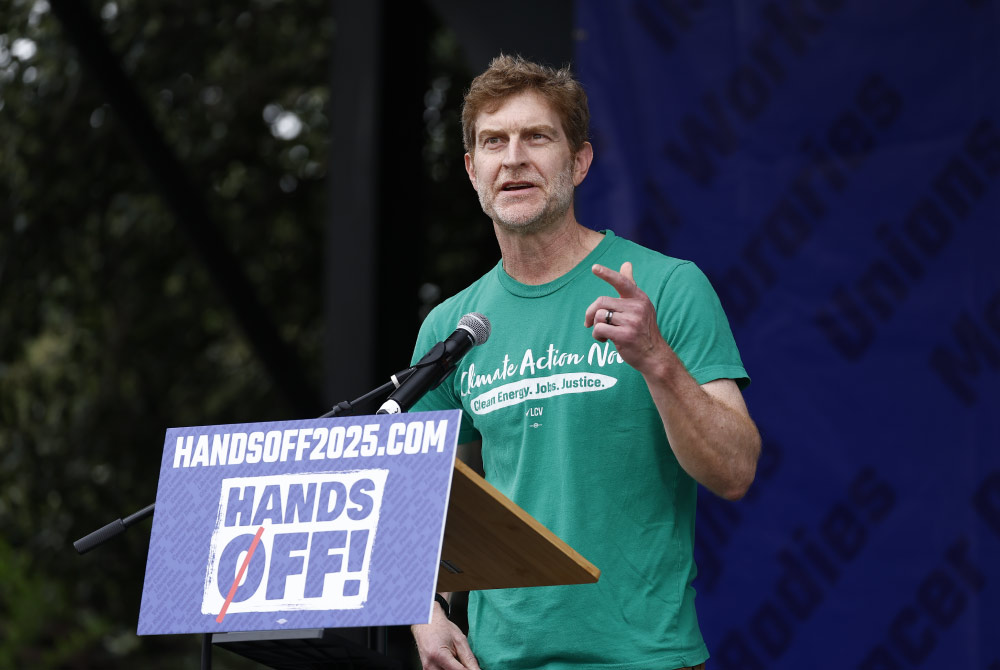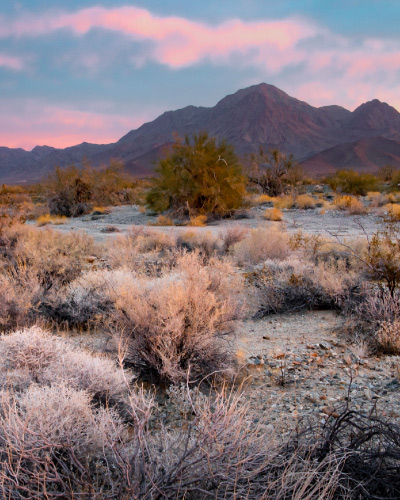
Hands Off!: Millions of Protesters Send a Message to Donald Trump and Elon Musk
Apr 11, 2025
 LCV President Pete Maysmith speaks at the Hands Off! rally in Washington, D.C. Photo Credit: Getty Images for Community Change
LCV President Pete Maysmith speaks at the Hands Off! rally in Washington, D.C. Photo Credit: Getty Images for Community Change
Each month, LCV shares five stories about the impact of our work. This month, we’re focusing on how we helped defeat the Trump/Musk agenda in Wisconsin, broaden voting access in New Mexico, and advance clean energy progress in two of the nation’s largest cities — all while investing in future climate leaders and representing the environmental movement at the D.C. Hands Off! rally.
Despite the fact that Elon Musk spent $24 million in an attempt to buy a Wisconsin Supreme Court seat earlier this month, LCV’s Wisconsin state affiliate, Wisconsin Conservation Voters Independent Expenditure Committee (WCV IEC), helped turn out pro-democracy, pro-climate voters to win this critical race.
WCV IEC played a pivotal role in this victory, investing over $1.13 million and mobilizing thousands of volunteers to ensure voters knew what was at stake. Their work includes:
“This win is a testament to the power of voters standing up against corporate polluters, anti-democracy forces, and the extreme agendas of Elon Musk and Donald Trump,” said WCV Executive Director Kerry Schumann. “This sends a clear message to those who wish to dismantle what’s best for our state, its people, and its environment. And, it’s a call to press the fight and reclaim our shared future.”
Dig Deeper: Learn more about what was at stake in this election and why it matters for Wisconsin and the nation.
Pete Maysmith joined millions of people across the country on April 5 to defend our public lands, our rights to clean air and water, and our communities. During his speech at the Washington, D.C. Hands Off! rally, Maysmith called out the president for selling out our health and our environmental protections in favor of Big Polluters’ profits.
Maysmith laid out a clear vision for a prosperous future: tackling the climate crisis, creating jobs and lowering energy bills, and protecting public lands and our communities. He also called for protecting our nation’s democracy, making sure that every vote is counted, and that communities have a voice in the decisions that impact them.
Get to Know Pete Maysmith: Read his reflections on his first day as LCV president and learn about his vision for how LCV will meet this moment.
Rally Together: Check out Hands Off! Images from across the country.
To address the climate crisis, voters must be able to have their voices heard at the ballot box. New Mexico lawmakers ended their 2025 session by passing legislation that broadens who can participate in its primaries. The bipartisan legislation — which was signed into law by Governor Michelle Lujan Grisham earlier this month — creates semi-open primaries, replacing the previously closed primaries that excluded large swaths of independent and undeclared voters because only registered Democrats or Republicans were allowed to participate.
LCV’s state affiliate, Conservation Voters New Mexico (CVNM), helped secure this bipartisan legislation by:
There is a nationwide trend to more open primaries. The number of states with closed primaries that don’t allow independent voters to participate has fallen to 16 in recent years. States affiliates across the CVM are considering a variety of approaches to create a more inclusive and participatory democracy.
According to the U.S. census, more than 80% of the U.S. population lives in urban areas, making the work occurring in cities across the country to tackle the climate crisis critically important. Urban climate action decreases emissions, creates cleaner air and water for residents, and provides successful models to be replicated across all levels of government. Boston and Chicago, two of the largest cities in the U.S., are climate leaders among urban areas and have recently shifted buildings to clean energy.
Boston is the first city in the country to require most new large buildings to have net-zero carbon emissions from the day they open. This new zoning requirement will accelerate progress in achieving the city’s goal of being carbon-neutral by 2050 — which is significant given that buildings account for nearly 71% of Boston’s carbon emissions. The new requirements will be met by reducing energy use through efficiency upgrades, increasing electrification, and using renewable energy sources.
LCV’s state affiliate, Environmental League of Massachusetts, was instrumental in this win. Their staff:
As of January 1, 2025, all 411 buildings and facilities owned by the city of Chicago are running entirely on renewable energy — including O’Hare Airport, one of the busiest airports in the world. This milestone will eliminate 290,000 metric tons of emissions each year — equivalent to taking more than 62,000 cars off the road annually. One key benefit of this plan is that the city is sourcing renewable energy for its buildings by bankrolling new renewable energy projects rather than just purchasing existing renewable energy.
LCV’s state affiliate, Illinois Environmental Council, played a leading role in securing this victory by:
Building future leaders is a key component of LCV’s long-term strategy and feeds into our theory of change, which spans grassroots organizing, advocating for sound policies, holding elected officials accountable, building state and local power, and electing climate and democracy champions to office.
LCV and our affiliates grow leaders using a wide-range of approaches designed to meet the unique needs of the individual communities where we work. Recent leadership development efforts include:
The inaugural training event was created to meet the growing need for effective digital advocacy skills. Participants built leadership skills and engaged in the following:
Learn more about LCV’s Chispa programs and how they’re working to advance climate justice in Latine communities across the country.
Conservation Colorado, LCV’s state affiliate, led a Climate Justice Leadership Academy session at the University of Colorado Denver, providing knowledge and skills-building across a range of topics, including:
Through their free leadership programs, they are preparing the next generation of climate justice leaders in Colorado.
Our Candidate Academy trains pro-climate action and pro-democracy potential candidates to run for office. Four alumni who won their campaigns recently shared stories and tips with potential academy participants during our Campaign Fundraising Basics webinar. Our combination of in-person academies and webinars for prospective participants:
Over the last year more than 60 candidates graduated from the academies in Idaho, Louisiana, Utah, Vermont, and Texas, and 200+ prospective participants were reached by monthly webinars. There are currently 17 alumni holding office across the country.
Learn more about LCV’s Candidate Academies and how they prepare pro-environment leaders to run for office.
The Best Thing You Can Do Right Now
There are 640 million acres of public lands owned and managed by the federal government, including national parks, monuments, and wilderness areas. These safeguard cultural and historic sites, protect water sources, and create $45 billion in economic output along with nearly 400,000 jobs. The Trump administration wants to sell our public lands to private interests. Tell Congress to protect our public lands.
Tell Congress: Keep Public Lands in Public Hands